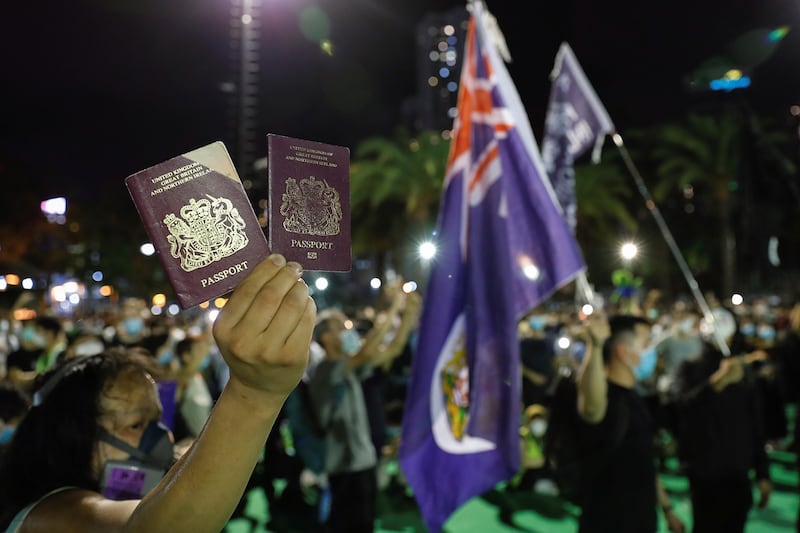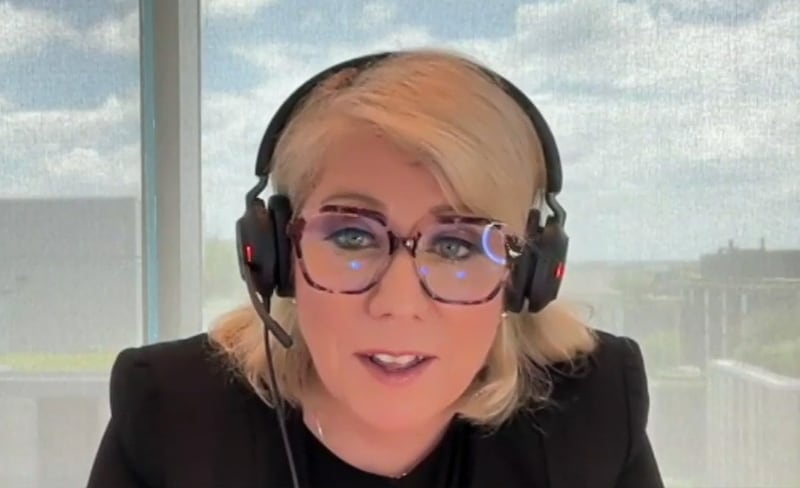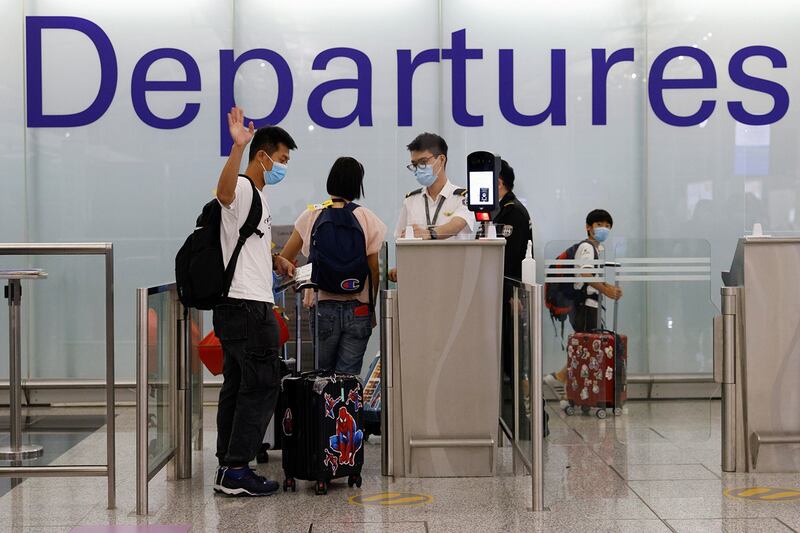In April 2023, Hong Kong Watch found that Hong Kongers were being denied access to up to £2.2 billion (US$2.8 billion) of their hard-earned Mandatory Provident Fund retirement savings. Fast forward one year, and the number has only increased to over £3 billion (US$3.8 billion).
This act of transnational repression is placing an unnecessary financial and mental strain on an estimated tens of thousands of Hong Kongers in the UK and Canada who moved abroad under British National (Overseas) (BNO) passports, set up to allow a permanent residence pathway for them.
The Mandatory Provident Fund (MPF) is a compulsory retirement savings scheme for the people of Hong Kong. Hong Kongers can ordinarily withdraw their entire account early if they make a statutory declaration that they have departed Hong Kong permanently with no intention of returning to resettle.
However, the Mandatory Provident Fund Authority, which oversees the provision of MPF schemes, released a statement in March 2021 saying that because the BNO passport was no longer recognised by the Hong Kong government as a valid travel document and proof of identity as of Jan. 2021. This means that those trying to withdraw their savings early cannot rely on the BNO passport or visa to support an application for early withdrawal of their funds.

Despite this, the MPF-related legislation, regulations, and terms of the deeds governing entitlement to MPF benefits in Hong Kong remain unchanged. Under the MPF trust deed, trustees including those based overseas like HSBC, Standard Chartered, Manulife and Sun Life, have a legal obligation to release MPF to beneficiaries who are able to provide evidence of their right to reside in a foreign country.
There is no reason that a BNO passport or visa should be denied under this deed.
However, the latest research from Hong Kong Watch includes case studies detailing how Hong Kongers continue to be denied access to their MPF on the grounds that they hold a BNO passport or visa.
This includes many Hong Kong families in the UK, from a single mother who is unable to afford a heater for her son due to being denied£57,000 (US$70,000) worth of her MPF, to a family of five that is unable to afford a wheelchair accessible property for their severely disabled child due to the withholding of their MPF.
Individual hardship
Others with withheld savings struggle to adapt to their new environments for financial reasons, to assist relatives in escaping from increasing repression in Hong Kong, and to start desired business ventures in the UK or Canada.
Since 2021 and as recently as last month, Hong Kong Watch has documented numerous rejection letters from MPF trustees to Hong Kongers denying the early withdrawal of their MPF on the grounds that the BNO visa or passport is not a valid form of identification per the Hong Kong government’s lawless declaration.
I have spoken with a Hong Konger who has £90,000 (US$114,000) frozen in MPF assets, and another who had obtained Canadian permanent residency and was still denied access to their MPF by Manulife for simply arriving in Canada with a BNO passport.
The latter case is especially concerning, particularly after Manulife's Global Head of Government Relations for Canada, Maryscott Greenwood, testified before the Standing Committee on Citizenship and Immigration on Monday and claimed that Manulife had never denied a Hong Konger access to their savings on the basis of holding a BNO visa.
Having seen a written transcript of a call between the Hong Konger who was denied access to their MPF and Manulife, in which Manulife said, “even if you hold Canadian PR, it’s ineligible to withdraw the fund as a BNO passport holder,” this is simply not true.

Sun Life’s Head of Global Government Affairs and Public Policy, Laura Hewitt, also testified in the hearing.
It was unfortunate but unsurprising that despite having productive meetings with Hong Kong Watch prior to the hearing, both Manulife and Sun Life executives delivered cautious, pre-prepared answers and repeatedly failed to respond to direct “yes” or “no” questions from the Canadian Parliament.
Fortunately, members of the Canadian Parliament including Tom Kmiec, Alexis Brunelle-Duceppe, Greg McLean, Paul Chiang, Fayçal El-Khoury, and Jenny Kwan, who is herself a prior BNO visa holder, were not satisfied with these non-answers.
The MPs pressed the business representatives on why they have withheld Hong Kongers’ own savings from them since 2021. Tom Kmiec asked both companies: “Why are you still operating in an autocratic, totalitarian regime that is dominated by Beijing?” The question remains unanswered.
Tasks for London and Ottawa
The next UK government should vow to provide clarification to UK-based MPF trustees that the BNO visa is intended to lead to “permanent settlement and British citizenship” to show their support for Hong Kongers in Britain.
London should also pledge to raise and condemn this form of transnational repression with their counterparts in Hong Kong. On the campaign trail, the future UK government has the opportunity to present these pledges to 140,000 eligible Hong Kong BNO voters.
The Canadian government should work with Immigration, Refugees and Citizenship Canada to change the designation of BNO passport and visa holders from GBN )Great Britain) to CHN (China) or HKG (Hong Kong) on Canadian permanent residency cards to prevent further retaliation from the Hong Kong government.

With a current backlog of 9,000 permanent residency applications for Hong Kongers in Canada, this will only become a greater administrative issue in the near future if IRCC labels the nationality of these people as GBN and GBN becomes a lever for transnational repression.
The backlog of permanent residency applications from 2023 should be cleared within the next two months, and the designation on those applications should be changed to CHN or HKG, depending on what is best for the Hong Kong community in terms of maintaining their distinctive identity while preventing future retaliation from the Hong Kong government.
The ongoing withholding of Hong Kongers’ savings is not only a form of financial abuse, but an act of transnational repression that is affecting the ability of generations of Hong Kongers to build a strong foundation for their new lives as they flee from the cessation of their rights and freedoms at home.
It is beyond time for governments to respond with intervention, not least because the release of these savings would inject large sums into the UK and Canadian economies.
Megan Khoo is a research and policy advisor at the international NGO Hong Kong Watch. Khoo, based in London, has served in communications roles at foreign policy non-profit organizations in London and Washington, D.C.. The views expressed here do not reflect the position of Radio Free Asia.
